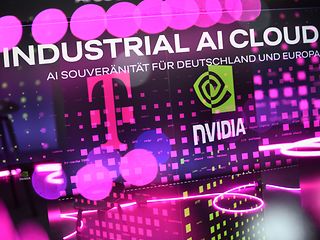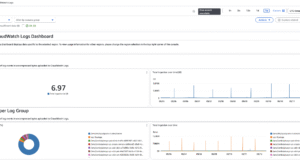The Industrial AI Cloud, slated to go live in the first quarter of 2026, promises a secure and powerful platform for public institutions and enterprises alike. Deutsche Telekom will provide the physical infrastructure, while SAP is contributing its Business Technology Platform and applications, creating a “Deutschland-Stack” designed for easy integration of AI solutions.
According to SAP CEO Christian Klein, “Germany and Europe have all the prerequisites to take a leading role in the global competition for industrial AI. This joint project is a first important step on the way to ‘Industrial AI made in Europe.'”
Beyond Telekom and SAP, a growing ecosystem of partners is coalescing around the Industrial AI Cloud. Companies like Siemens, Agile Robots, Wandelbots, Quantum Systems, PhysicsX, and Perplexity are already on board, contributing their expertise and technologies to the platform.
This collaborative approach is crucial, fostering a dynamic environment where companies can leverage each other’s strengths to accelerate AI adoption. “The Industrial AI Cloud is about mobilizing sovereign compute infrastructure and a modern software stack to make AI available and consumable at scale for industrials,” explains Jacomo Corbo, CEO of PhysicsX. “It’s now a fundamental precondition for competitiveness.”
The infrastructure underpinning the Industrial AI Cloud is nothing short of impressive. A renovated data center in Munich will house over a thousand NVIDIA DGX B200 systems and NVIDIA RTX PRO™ Servers, equipped with up to 10,000 NVIDIA Blackwell GPUs. These will be running accelerated workloads using NVIDIA CUDA-X, NVIDIA Omniverse, and NVIDIA AI Enterprise software.
This raw computing muscle will enable businesses to tackle complex AI challenges, from designing new products to optimizing manufacturing processes. As Jensen Huang, CEO of NVIDIA, puts it, “With the world’s first Industrial AI Cloud and one of Germany’s largest GPU deployments, we’re bringing NVIDIA AI and robotics to start a new era of Germany’s industrial transformation.”
What’s particularly noteworthy is that the Industrial AI Cloud is a purely private sector initiative. It’s a demonstration of the German industry’s commitment to digital sovereignty and its willingness to invest in the infrastructure needed to compete in the age of AI.
Deutsche Bank CEO Christian Sewing emphasizes this point: “The new AI factory is not a government measure, but a purely private-sector initiative – supported a growth engine in Europe again. This is exactly what Made for Germany stands for.”
The launch of the Industrial AI Cloud is a significant step towards establishing Germany as a leading AI hub. However, the real test will be in its execution. Successfully attracting and supporting a diverse range of businesses, fostering collaboration, and ensuring the platform remains secure and accessible will be crucial for realizing its full potential.
If successful, this initiative could serve as a model for other European countries seeking to build their own sovereign AI capabilities and revitalize their industrial sectors. The future of “Industrial AI made in Europe” may well depend on the lessons learned from this ambitious project.





